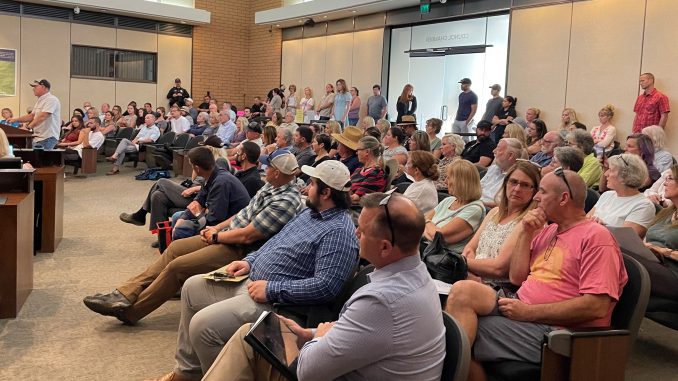
by Jason Cassidy & Evan Tuchinsky
These days, there seems to be no such a thing as a routine City Council meeting in Chico. Despite what looked to be a straightforward agenda dealing with grant fund allocations and mayoral proclamations, the session Tuesday night (May 17) got overtaken by a wave of public comments related to proposed alternate locations where homeless persons in encampments could relocate.
The regular council meeting came on the heels of a sparsely attended afternoon budget session, which proved so uneventful that the council moved up the closed session that preemptively addressed the forthcoming concerns from most the 45 citizens who signed up to to speak or submitted online comments.
“It’s a contrast between the meeting at night and the budget hearing,” Mayor Andrew Coolidge told the CN&R by phone Wednesday morning. “It’s like, ‘Look, folks, we’re spending $211 million,’ and we don’t have that much community interest in it. … But, you know, all politics is local, so they care about what’s in front of them and by their house. I don’t blame them for that concern.”
At issue were two of the three locations announced by the city on May 12—an acre on the north side of Fair Street near the intersection of Fair Street and Country Drive and two acres at the northwest corner of Bruce and Humboldt roads. The third is an acre on the northwest corner of Eaton Road and Cohasset.
The city is creating the sites to facilitate enforcement of anti-camping ordinances at established homeless encampments. As per the Warren v City of Chico settlement, as the city clears encampments, it “may provide, or cause to be provided, to the homeless person a list of at least three public property locations where the city will not enforce its anti-camping ordinances and regulations for at least 60 days.”
Before the public weighed in, City Attorney Vincent Ewing announced the only results from the closed session: Regarding the Warren settlement, “the council directed staff to move forward only with the Eaton/Cohasset site and to agendize in open session the discussion of two additional sites.”
Most of the speakers nonetheless chose to say their piece. “Thank you for reconsidering those three sites,” said Pam Mays, , one of several expressing gratitude for the council’s change of course. “The safety of Chico’s children should be our number one priority.”
The safety of students at Marsh Jr. High—near the proposed Bruce/Humboldt site—was at the top of list of reasons for opposition, with parent Kellieann Seiz expressing concern over previous violence at homeless encampments.
“How many lockdowns can we expect to see at Marsh Jr. High School?” she asked.
After the meeting, Coolidge confirmed that the council was not moving forward with the two sites of contention and that additional alternate locations would be on the agenda for public discussion at the June 7 council meeting.
As for the rest of the regular meeting, all 25 minutes of it: The first 10 consisted of proclamations from the mayor—one recognizing Arbor Day, one for the Chico High team that won the Nor Cal Cyber Mayor’s Cup cybersecurity competition—and the final 15 comprised two 7-0 votes without discussion.
The council approved the Housing Division’s action plan for using federal funds from the Department of Housing and Urban Development (for Small Block Development Grants and Home Investment Partnership Grants—more than $3 million for community development and programs that serve low- and moderate-income households). Also, on an item tabled several times this year, the council authorized adding $172,000 to the budget in response to results from the city’s employee classification study.
Previously …
The afternoon session stood in sharp contrast to the evening session—just two speakers and a peak of 10 members of the public in chambers for the budget review, which (including a 25-minute break) took three hours.
As City Manager Paul Hahn and each department head explained their pieces of the proposed 2022-23 budget, few questions emerged, and the council approved city staff’s recommendations without revision. The vote was 6-1, with progressive Councilwoman Alex Brown dissenting from her conservative counterparts.
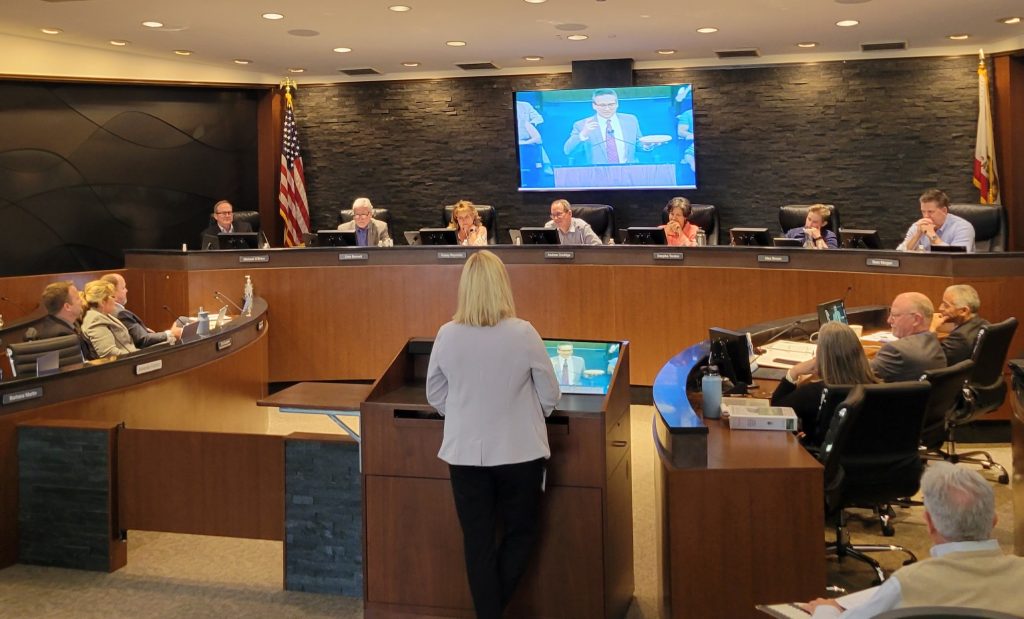
The budget increases operating expenses (i.e., the general fund, reliant mainly on sales tax and property tax) from $98.5 million this fiscal year to $113.6 million and spending on capital projects (such as road improvements, funded largely by grants and gas tax) from $44.4 million to $97.4 million. Police, at $31.3 million, and fire, $16.7 million, constitute 76.8 percent of the general fund expenditures.
“The city is growing,” Coolidge said. “Will we see a budget at that level next year? I don’t anticipate it, because we won’t have the extra almost $25 million coming in from the federal government [under the American Rescue Plan Act].”
Sean Morgan, the longest-serving member of the current council at 10 years, called the budget “clean and straightforward.” He the made the motion for approval, which former police chief Michael O’Brien seconded.
“The presentations, they haven’t always gone that well,” he told the CN&R afterward. “I’ve been at ones where it was an all-day meeting, 8-5, and it was more of staff justifying why they wanted this thing or that thing. With the more solid shape the [city] finances are in, it would have been easy for people to come up and say, ‘I want this many people.’”
“You heard the police chief: ‘I’m not going to ask for more officers.’ I’ve never heard that before. Everything’s not perfect—we need better roads, we need some more revenue—[but] this is as clean and optimistic as I’ve ever seen move forward, and that was a long time coming.”
Several departments will add employees, predominantly Public Works and Community Development. What Police Chief Matt Madden, in conjunction with Fire Chief Steve Standridge, did ask for is more dispatchers. They plan to “bifurcate” the city’s 911 response to each branch of public safety.
Instead of a single dispatch center, dedicated Chico PD staff will handle calls for law enforcement at their facility and dedicated CFD staff will do likewise for fires and medical emergencies at their facility, each under the jurisdiction of their respective chief.
Madden explained to the council that 15 dispatchers, including a supervisor who’s had to jump onto the phones, took 81,000 calls last year—a third of which were for fire or emergency medical response. Police dispatch vacancies are harder to fill due to stricter requirements for training.
The chiefs proposed adding two dispatchers for a total of 25, and three would transfer to bolster creation of CFD’s dispatch center. The departments will implement the concept—bandied by various chiefs since 2000, Madden said—July 1.
“It is challenging for our dispatchers to have to float back and forth between dispatching fire, dispatching PD,” Standridge told the CN&R. “Those [distinct] expectations and requirements have expanded so much from even 15, 20 years ago…. The weight of that now, it gets to be like asking a police officer to also be a firefighter and, conversely, a firefighter to also be a police officer. They’re two separate professions.”
Said Madden: “That 911 center is just so important to our community and our livelihood, I need good efficiency, I need good oversight, I need good supervision to make sure that we’re providing the level of service to the community that they expect.”
The public will not notice a difference in call routing, both chiefs explained.
The council dedicated the session to the memory of Scott Dowell, the city administrative services director and local pastor who succumbed to illness April 6. Barbara Martin, the deputy finance director promoted to interim administrative services director, concluded the presentation with a video clip from 2015’s budget meeting showing Dowell illustrating how funding allocations work courtesy of an apple pie he shared with council members—establishing an annual tradition.
A council rookie at the time, Coolidge told the CN&R that the lesson resonated with him, as did the tribute.
“It really showed how much his staff believed in him and respected him,” he said. “To have them tear up at a meeting presenting a budget that he basically pushed through was just a very difficult situation for them. [Martin] shed a few tears there at the end, but she’s really carrying forward his legacy in the city, and I think that’s very important.”

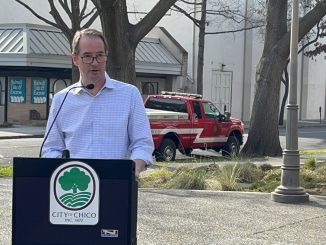
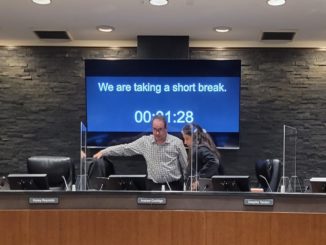
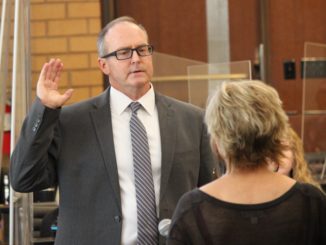
Wowwww…
Seems much like the City of Redding which – according to the Court – appears to also take the law into their own hands… especially when it comes to their own already vastly ripped-off Indigenous People:
https://shastascout.org/reddings-rapid-and-secretive-sale-of-public-land-violated-state-laws-and-city-policy-court-finds/?mc_cid=288dd6aeba&mc_eid=c9d4cfe445
Are you even serious? This article is incredibly egregious. Are you trying to rub it in the public’s face that they are too nauseous to watch our money go down the drain, yet again? Our money has been defrauded so many times by Chico Gov’t. It’s that we are too *disgusted* to watch it happen again. THAT is why no one was at that meeting. To the officials doing it, if you tried to clear the room by grossing us out, it worked.
I bet they did have tears. Pfft. Also truly Sean Morgan’s stamp of approval doesn’t mean much. Most of us know he is double dipping his CalPers right now for ~$15k a year. This article is so confrontational to Chico taxpayers. Unbelievable.